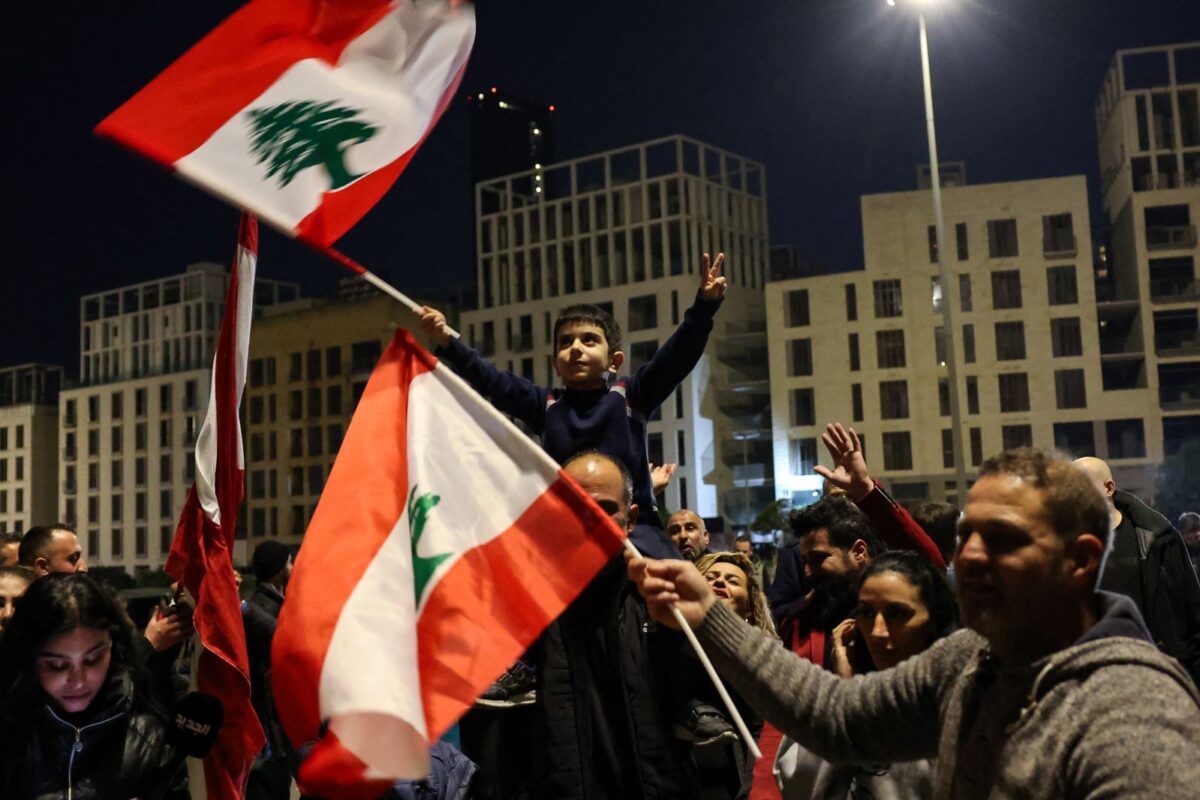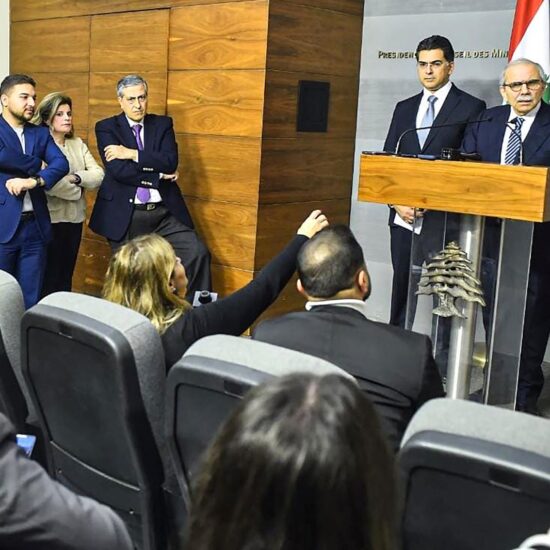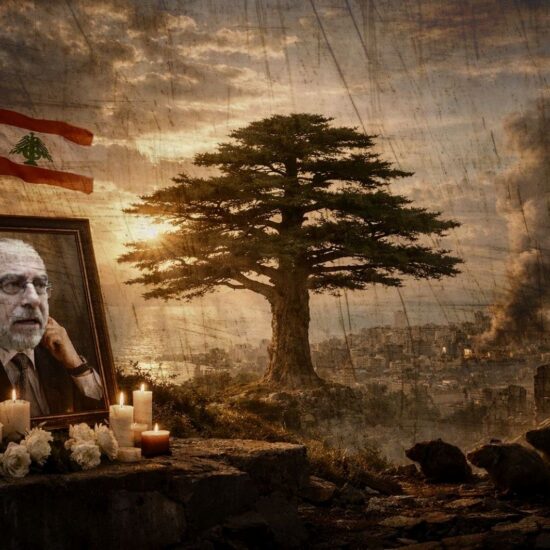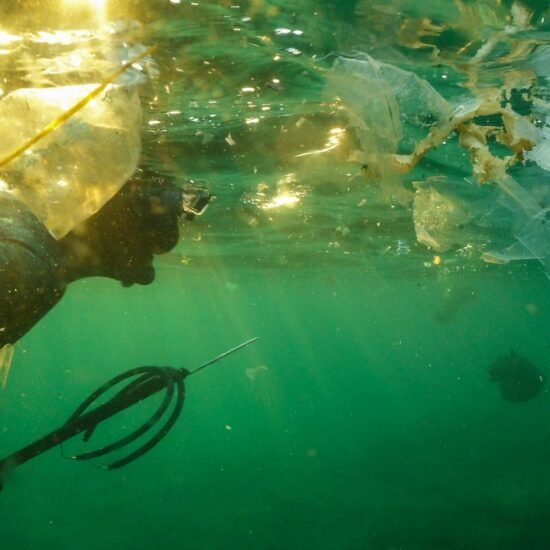
Joseph Aoun's election was warmly greeted in Lebanon and across the Middle East, ending two years of a political stalemate that left the country without a government. His election coincided with the appointment of Judge Nawaf Salam, as Lebanon's new Prime Minister less than a week later, bringing the country a renewed sense of hope for stability and effective governance
One of President Joseph Aoun’s initial responsibilities was appointing a Prime Minister, a task anticipated to be challenging, with analysts predicting a lengthy process. However, the swift selection of a Prime Minister within just a few days came as a surprising and noteworthy achievement, signaling a potential turning point and a step toward restoring the fundamental functioning of Lebanese politics.
Lebanese President Joseph Aoun announced on Thursday, 9th January in his first speech in Parliament the start of a new phase in the country’s history, calling for a “change in political performance” and building a homeland where everyone is “under the roof of the law and the judiciary.”
“We are full of joy, we are literally celebrating this historic moment in Lebanon that we very much missed and now we are hopeful that our demands from the 2019 revolution will not go to waste,” this is how Joumana Farhat, a school teacher told NOW as most Lebanese are commonly sharing similar thoughts all over social media.
The Lebanese parliament elected Aoun as the country’s new president on Thursday afternoon during a second round of voting. He secured 99 out of 128 votes, following an initial round in which he failed to achieve the required two-thirds majority to win as Hezbollah legislators had withheld their votes from Aoun in the first round but voted for him in the second in a bid to show that Hezbollah cannot be politically sidelined even if it in its most fragile state. Some local commentators saw this move as a pity for Lebanese political acts.
The President is the highest symbolic post in the country, and having it absent for two years has made it very challenging for Lebanon, making the whole system very fragile and paralyzed, not just for security or foreign policy but also for local politics.
With ongoing regional conflict and political instability, along with Lebanon’s catastrophic economic crisis, these recent elections have been greeted with much optimism and hope.
Some claim this is a new era for Lebanon as supporters of both the new president and the new Prime Minister are hopeful that better days lie ahead.
General Joseph Aoun, a career military man, has led Lebanon’s army since 2017, among his main achievements maintaining the Lebanese Armed Forces through years of economic and political crisis. His greatest challenge ahead will be to preserve the ceasefire between Israel and Hezbollah which hinges on the deployment of Lebanon’s military to the south of the country.
Nawaf Salam, Lebanon’s new Prime Minister, is a man who does not belong to the traditional political class that governed the country for decades. Salam is a diplomat, lawyer and presiding judge in the International Court of Justice represents change and a new beginning.
Salam’s candidacy was initially blocked, but with the shift in the balance of power, the political dynamics have changed. Hezbollah and its allies were reportedly in favor of keeping the incumbent, Najib Mikati, in the role. However, their political influence seems to be waning following significant military blows by Israel. Even Sleiman Frangieh, a candidate previously supported by Hezbollah and Amal Movement withdrew from Lebanon’s presidential race on Wednesday and announced his support for Joseph Aoun.
The task now is to form a new government in Lebanon, a process that usually takes time as political players compete for their share of power, but this time the selection of a cabinet that is capable of making positive developments for Lebanon’s economy and whilst fighting corruption, will be critical.
“This is such a positive step for Lebanon, President Joseph Aoun is undoubtedly a dedicated man, reflected in his performance as leader of the Lebanese Army amid the worst crises of the country, whilst the New Prime Minister is also a distinguished Harvard graduate, President of the International Court of Justice and a steadfast advocate for human rights.” Sarah Baraki, a law student at Lebanese University told NOW and expressed her joy to the recent developments in Lebanon’s political dynamic.
For many Lebanese residents like Sarah, the New Prime Minister, Nawaf Salam embodies the integrity, intellect and leadership that Lebanon desperately needs whilst President Joseph Aoun preserves Lebanon’s sovereignty.
In Aoun’s first speech to parliament, the ex-commander of the Lebanese Army promised to build a functional state by disarming Hezbollah, its armed wing that has been stronger than Lebanon’s army.
Lebanon’s complicated political system is based on power-sharing between religious sects. The prime minister must be Sunni Muslim, the speaker of the cabinet Shia, and the President Christian, meaning getting a majority vote depends on rival factions creating strategic alliances. In the past Hezbollah insisted the post of the president must go to one of its allies, but Israel’s war on Gaza, its offensive in Lebanon and the fall of the Assad regime in neighboring Syria has weakened the armed group and its allies.
Aoun’s election has been welcomed in Washington and also in the Middle East by allies including Saudi Arabia, the UAE and Qatar.
Lebanon needs international assistance to rebuild what was destroyed during the war, it also needs US support to ensure Israel respects a ceasefire deal agreed in November.
Joseph Aoun has pledged to fight corruption and poverty, promote economic reform and invest in the Lebanese Army.
“After years of chaos and instability, the Lebanese people are so desperate and thirsty for such developments in the country, and we are now relying on the new president and prime minister to deliver this,” said Joumana.
Rodayna Raydan is a Lebanese-British journalist. You can follow her on Twitter @Rodayna_462
The views in this story reflect those of the author alone and do not necessarily reflect the beliefs of NOW.








